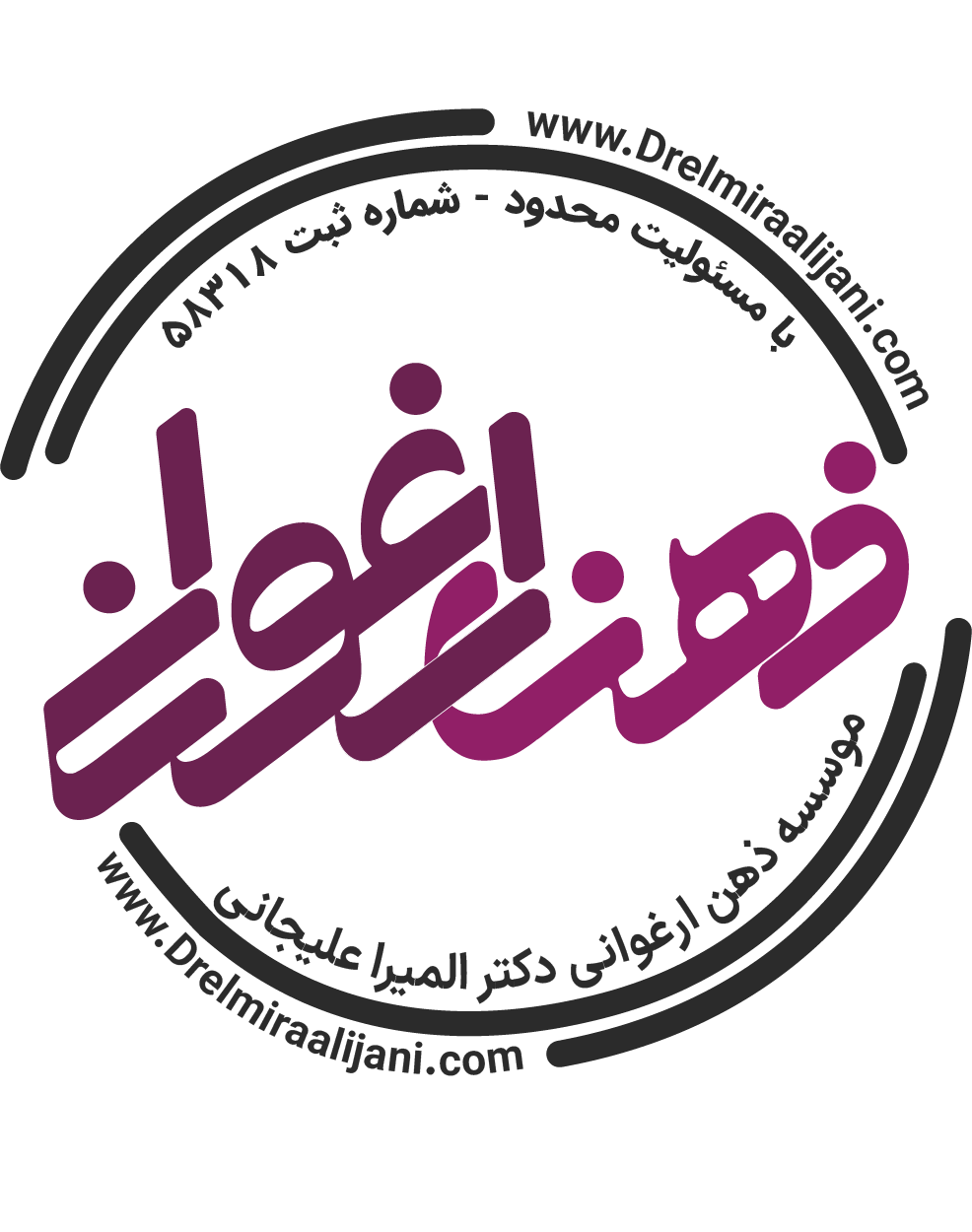مقدمه
در درون هر فرد، سه بخش اصلی روانشناختی وجود دارد: کودک درون، والد درون و بالغ درون. در حالی که کودک درون منبع احساسات، خلاقیت و لذتجویی است و والد درون نمایانگر ارزشها، بایدها و نبایدهاست، بالغ درون نقش ناظر و تنظیمکننده دارد. این بخش از شخصیت ما، مسئول تعامل منطقی با جهان، تصمیمگیریهای عاقلانه و کنترل رفتارها و احساسات است.
اما سوال اصلی این است: چگونه میتوانیم بالغ درون خود را بشناسیم و آن را تقویت کنیم؟
🔹 بالغ درون چیست؟
بالغ درون، نماینده بخش منطقی، واقعبین و متعادل شخصیت ماست. این بخش، بر پایه تجربه، تحلیل اطلاعات و درک واقعیت شکل میگیرد. برخلاف کودک درون که با هیجان و احساس تصمیم میگیرد، بالغ درون با تفکر سنجیده، پردازش دادهها و در نظر گرفتن پیامدها عمل میکند.
اگر بالغ درون در فردی قوی باشد، او قادر خواهد بود:
در شرایط بحرانی، آرامش خود را حفظ کند
مسئولیت رفتارها و تصمیمات خود را بپذیرد
به جای واکنشهای هیجانی، پاسخهای سنجیده و منطقی ارائه دهد.
ویژگیهای کلیدی بالغ درون:
1. تصمیمگیری آگاهانه
بالغ درون توانایی دارد از زاویه ای بی طرف به مسائل نگاه کرده، اطلاعات را تحلیل و بهترین تصمیم را اتخاذ کند.
2. مدیریت احساسات
یاد میگیرد که احساسات را بشناسد، نامگذاری کند و اجازه ندهد آنها کنترل رفتارش را در دست بگیرند.
3. مسئولیتپذیری
به جای فرافکنی یا سرزنش دیگران، مسئولیت زندگی و رفتار خود را میپذیرد.
4. خودآگاهی
بالغ درون دائم در حال ارزیابی خود است. او میپرسد: "چرا اینطور رفتار کردم؟ انگیزه من چه بود؟"
5. حل مسئله مؤثر
در مواجهه با چالشها، به جای فرار یا بیتفاوتی، دنبال راهحلهای عملی و منطقی میگردد.




راهکارهای تقویت بالغ درون:
۱. تمرین خودآگاهی
با مدیتیشن، نوشتن احساسات روزانه، یا مراجعه به رواندرمانگر میتوان سطح آگاهی از خود را افزایش داد. بالغ درون با آگاهی زنده است.
۲. پذیرش مسئولیتها
به جای سرزنش دیگران یا شرایط، مسئولیت تصمیمات و عواقب آنها را بپذیر. این اولین گام بهسوی تقویت بالغ درون است.
۳. تمرین توقف و پاسخ
بهجای واکنش سریع، چند ثانیه مکث کن. این فاصله کوچک، جاییست که بالغ درون میتواند وارد عمل شود و تصمیم بگیرد.
۴. تعیین اهداف واقعبینانه
با مشخصکردن اهداف کوتاهمدت و بلندمدت، و برنامهریزی برای رسیدن به آنها، نظم و انسجام ذهنی بهوجود میآید.
۵. تقویت مهارتهای ارتباطی
گوشدادن فعال، بیان شفاف احساسات، و گفتوگوی صادقانه، پایههای تعامل سالم انسانی هستند که بالغ درون را تقویت میکنند.
۶. پذیرش شکست و خطا
بالغ درون میداند که اشتباه بخشی از رشد است. بهجای شرمندگی یا انکار، از اشتباهات درس میگیرد.
ارتباط بالغ درون با کودک و والد درون
بخش بالغ درون مثل یک میانجی هوشمند بین والد سختگیر و کودک پرشور عمل میکند. وقتی کودک درون خواستهای هیجانی دارد و والد درون مخالفت میکند، بالغ درون وارد میشود و بررسی میکند که کدام رفتار منطقی و سالمتر است.
مثلاً:
کودک درون: "الان میخوام بیهدف سریال ببینم."
والد درون: "نباید وقت تلف کنی، تنبلی بده!"
بالغ درون: "اگه واقعاً خستهای، یک ساعت استراحت اشکالی نداره. بعدش برگرد به کار."
جمع بندی: بالغ درون، بخش ارزشمند و رشد یافته روان ماست که با تمرین و آگاهی میتوان آن را پرورش داد. این بخش، کلید آرامش درونی، روابط سالم و موفقیت در زندگی شخصی و حرفهای است.
اگر یاد بگیریم بیشتر از این بخش عمل کنیم، نهتنها احساس کنترل بیشتری بر زندگی خواهیم داشت، بلکه رشد و بلوغ شخصیتی واقعی را نیز تجربه میکنیم.


توصیه پایانی
شروع کن با روزانه چند دقیقه نوشتن در مورد تصمیماتت، احساساتت و واکنشت به موقعیتها. ببین در کجاها کودک درون یا والد درونت پررنگ بودن، و کجا بالغ درونت نقش داشته. این تمرین ساده، پایهٔ شروع تغییرات بزرگ خواهد بود.
📚 منابع معتبر برای مطالعه بیشتر (نسخه فارسی)
برای درک عمیقتر از مفاهیم مرتبط با بالغ درون، خودشناسی و رشد شخصی، مطالعه منابع زیر پیشنهاد میشود:
Introduction
Within each of us live three core psychological parts: the Inner Child, the Inner Parent, and the Inner Adult. While the Inner Child brings emotions, creativity, and spontaneity, and the Inner Parent represents values, rules, and conditioning, the Inner Adult acts as the rational observer and regulator. It helps us respond—not just react—to life.
But what exactly is the Inner Adult, and how can we strengthen it to create a more balanced, self-aware life?
🔍 What Is the Inner Adult?
The Inner Adult represents our rational, conscious, and grounded self. It’s the part of us that is based on reality—not emotion or inherited rules. Unlike the reactive Inner Child or the judgmental Inner Parent, the Inner Adult evaluates situations calmly, makes informed decisions, and takes responsibility for actions.
People with a strong Inner Adult are typically:
Emotionally balanced
Accountable
Thoughtful
Solution-oriented
Resilient in the face of stress
🌟 Key Traits of the Inner Adult
1. Rational Decision-Making
The Inner Adult gathers information, weighs pros and cons, and chooses actions based on long-term outcomes—not short-term emotions.
2. Emotional Regulation
Instead of being ruled by emotional impulses, it identifies feelings and expresses them with clarity and maturity.
3. Accountability
It owns its actions. Rather than blaming others, it takes responsibility for decisions and their results.
4. Self-Awareness
It continuously reflects: “Why did I react that way? What was really driving my behavior?”
5. Effective Problem Solving
It sees problems as challenges to work through—not threats to avoid—and seeks practical, productive solutions.
🛠 How to Strengthen Your Inner Adult
✅ 1. Practice Self-Awareness
Daily journaling, mindfulness, or therapy helps you understand your thoughts, emotions, and patterns. Awareness is the foundation of the Inner Adult.
✅ 2. Take Responsibility
Instead of blaming circumstances, others, or even your past, learn to say, "This is my life—I’m responsible for how I respond."
✅ 3. Create a Pause Before Reacting
A few seconds of conscious breathing can allow your Inner Adult to speak before your Inner Child or Inner Parent hijacks the situation.
✅ 4. Set Realistic Goals
Define clear, achievable goals for yourself. The Inner Adult thrives on structure and purpose.
✅ 5. Improve Communication
Practice active listening, express your needs calmly, and avoid passive-aggressive behavior or emotional outbursts.
✅ 6. Embrace Mistakes
A strong Inner Adult understands that mistakes are part of growth. Instead of denial or guilt, it seeks learning.
🔄 How the Inner Adult Balances Inner Child and Inner Parent
The Inner Adult is like a wise mediator. The Inner Child may want instant gratification, and the Inner Parent may harshly judge or restrict. The Inner Adult listens to both but chooses based on reason, compassion, and long-term well-being.
Example:
Inner Child: “I just want to binge-watch Netflix right now.”
Inner Parent: “That’s lazy. You should be working!”
Inner Adult: “It’s okay to rest for a bit. Let’s set a timer, then get back to the project.”
🧪 Real-Life Scenarios
| Situation | Inner Child Reaction | Inner Adult Response |
|---|---|---|
| Someone insults you | Anger, yelling, or tears | Stay calm, set boundaries, speak with clarity |
| You experience failure | Blame others or self | Reflect, learn, and plan better next time |
| Faced with temptation | Impulsive behavior | Evaluate consequences and make a conscious choice |
🧩 Conclusion
Your Inner Adult is your guide to a calm, balanced, and empowered life. It helps you navigate challenges with wisdom, build meaningful relationships, and stay grounded in reality.
With regular practice and self-reflection, you can strengthen this part of yourself—leading to more peace, clarity, and authentic confidence.
Final Tip
Each day, take 5 minutes to reflect:
“When did I act from my Inner Adult today?”
“When did I react from my Inner Child or Parent?”
Over time, this awareness will create powerful personal transformation.
📚 Further Reading (English Version)
To deepen your understanding of the inner adult and related psychological concepts, check out these well-researched articles:

